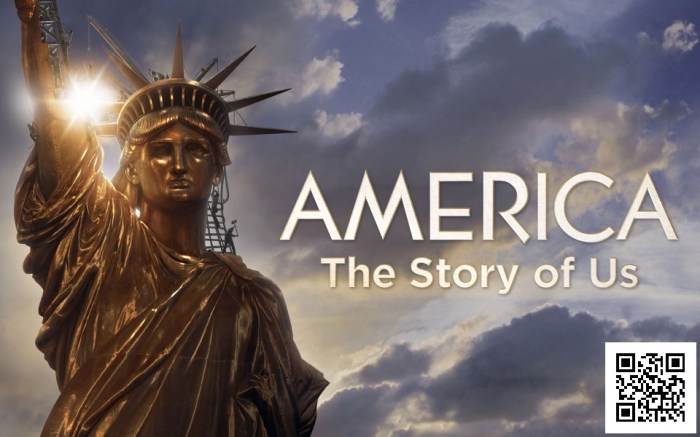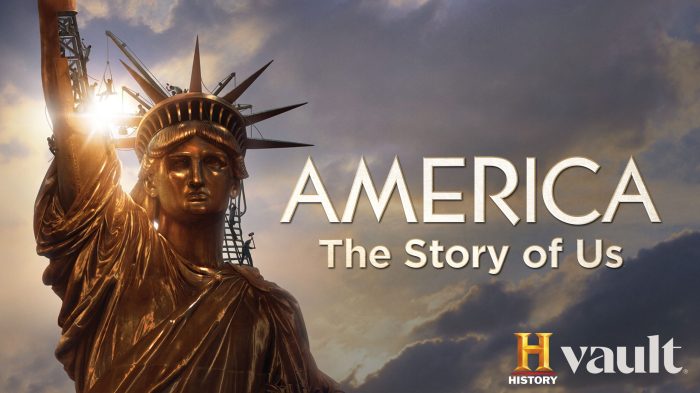America the Story of Us Bust Worksheet is a comprehensive resource that accompanies the acclaimed documentary series “America the Story of Us.” This engaging worksheet provides a unique and immersive way to delve into the rich tapestry of American history, fostering critical thinking and historical understanding.
The worksheet is meticulously designed to complement the documentary’s exploration of pivotal events, major themes, and the impact of historical narratives on public understanding. By incorporating the worksheet into educational settings, students can actively engage with the documentary’s content, develop their analytical skills, and gain a deeper appreciation for the complexities of American history.
Historical Context of “America the Story of Us”: America The Story Of Us Bust Worksheet
The documentary series “America the Story of Us” provides a comprehensive historical overview of the United States from the colonial era to the present day. It explores the nation’s origins, struggles, triumphs, and ongoing challenges through the lens of personal stories, archival footage, and expert commentary.
The documentary’s historical context is crucial for understanding the evolution of American society, culture, and institutions. By tracing the nation’s journey from its humble beginnings as a collection of British colonies to its rise as a global superpower, the series sheds light on the forces that have shaped the American character and the country’s role in the world.
Major Themes and Events Explored in the Documentary

The documentary series “America the Story of Us” explores a wide range of central themes that have shaped American history, including:
- Immigration: The documentary highlights the role of immigration in shaping the American population and culture, from the arrival of the first European settlers to the present-day influx of immigrants from around the world.
- Westward Expansion: The documentary chronicles the westward expansion of the United States, from the early explorations of the Louisiana Purchase to the settlement of the American West.
- Industrialization: The documentary examines the impact of industrialization on American society, including the rise of cities, the growth of the middle class, and the emergence of labor movements.
- Social Movements: The documentary explores the history of social movements in the United States, from the abolitionist movement to the civil rights movement to the women’s rights movement.
The documentary also covers specific historical events that have had a profound impact on the United States, such as:
- The American Revolution
- The Civil War
- The Great Depression
- World War II
- The Cold War
Analysis of the Documentary’s Historical Accuracy

The documentary series “America the Story of Us” has been praised for its historical accuracy and its ability to present a balanced and comprehensive view of American history. The documentary’s producers consulted with a team of historians to ensure that the information presented in the series was accurate and up-to-date.
However, some critics have argued that the documentary oversimplifies certain historical events and perspectives. For example, the documentary’s treatment of the American Revolution has been criticized for downplaying the role of slavery in the conflict.
Overall, the documentary series “America the Story of Us” is a valuable resource for anyone who wants to learn more about American history. The documentary’s engaging storytelling, visuals, and expert interviews make it an accessible and informative resource for students, teachers, and the general public.
Impact of the Documentary on Public Understanding of American History
The documentary series “America the Story of Us” has had a significant impact on public understanding of American history. The documentary has been widely watched by people of all ages and backgrounds, and it has helped to spark a renewed interest in American history.
The documentary’s use of storytelling, visuals, and expert interviews has made it an engaging and accessible resource for learning about American history. The documentary has also helped to foster dialogue about American history, and it has encouraged people to think critically about the past and its implications for the present.
The documentary series “America the Story of Us” is a valuable resource for anyone who wants to learn more about American history. The documentary’s engaging storytelling, visuals, and expert interviews make it an accessible and informative resource for students, teachers, and the general public.
Educational Applications of the Documentary

The documentary series “America the Story of Us” can be used in a variety of educational settings. The documentary can be used to teach historical concepts, critical thinking, and media literacy.
Here are some suggestions for using the documentary in educational settings:
- Use clips from the documentary to illustrate historical concepts. For example, you could use a clip about the American Revolution to teach about the causes of the war or the impact of the war on American society.
- Have students analyze the documentary’s use of storytelling, visuals, and expert interviews. This can help students to understand how documentaries are made and how they can be used to communicate historical information.
- Have students create their own documentaries about American history. This can help students to develop their research, writing, and presentation skills.
FAQ
What is the purpose of America the Story of Us Bust Worksheet?
The worksheet is designed to enhance the educational experience of the documentary series “America the Story of Us” by providing a structured framework for analysis, discussion, and critical thinking.
How can educators use the worksheet in the classroom?
Educators can incorporate the worksheet into lesson plans to guide students through the documentary’s content, facilitate discussions, and assess student understanding.
What historical themes are explored in the worksheet?
The worksheet covers a wide range of historical themes, including immigration, westward expansion, industrialization, social movements, and the impact of historical narratives on public understanding.